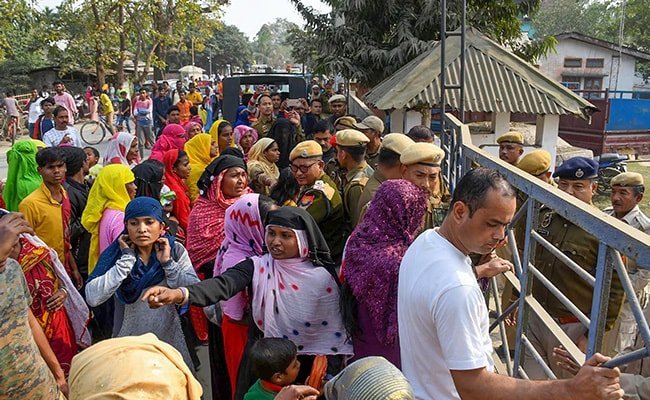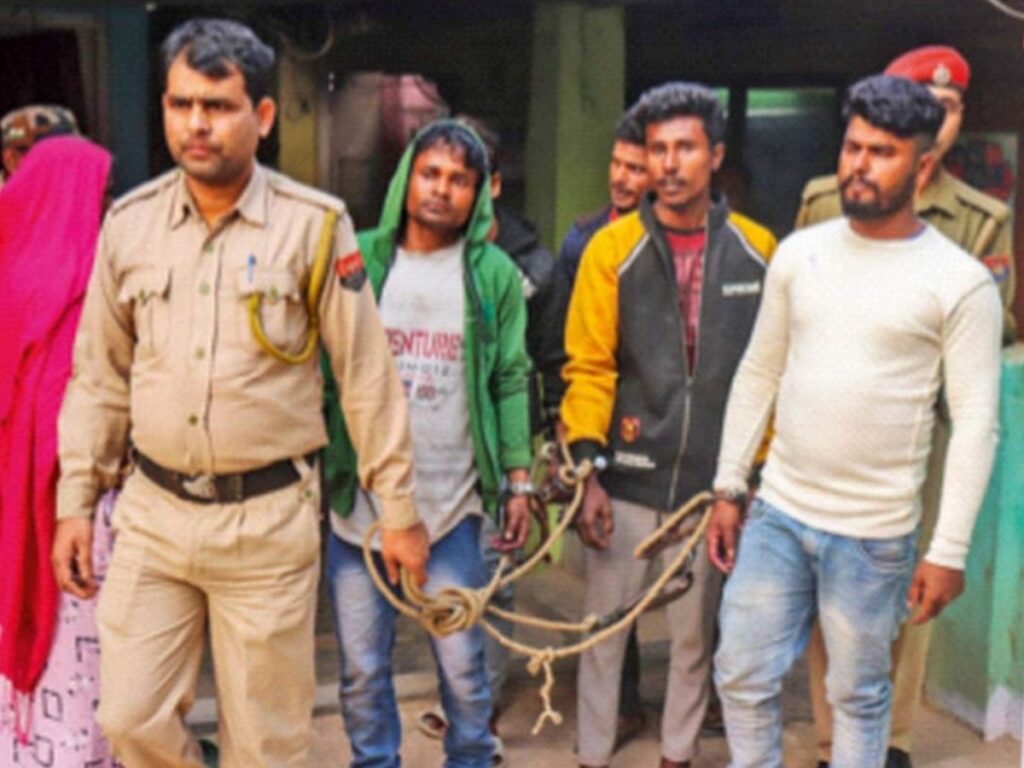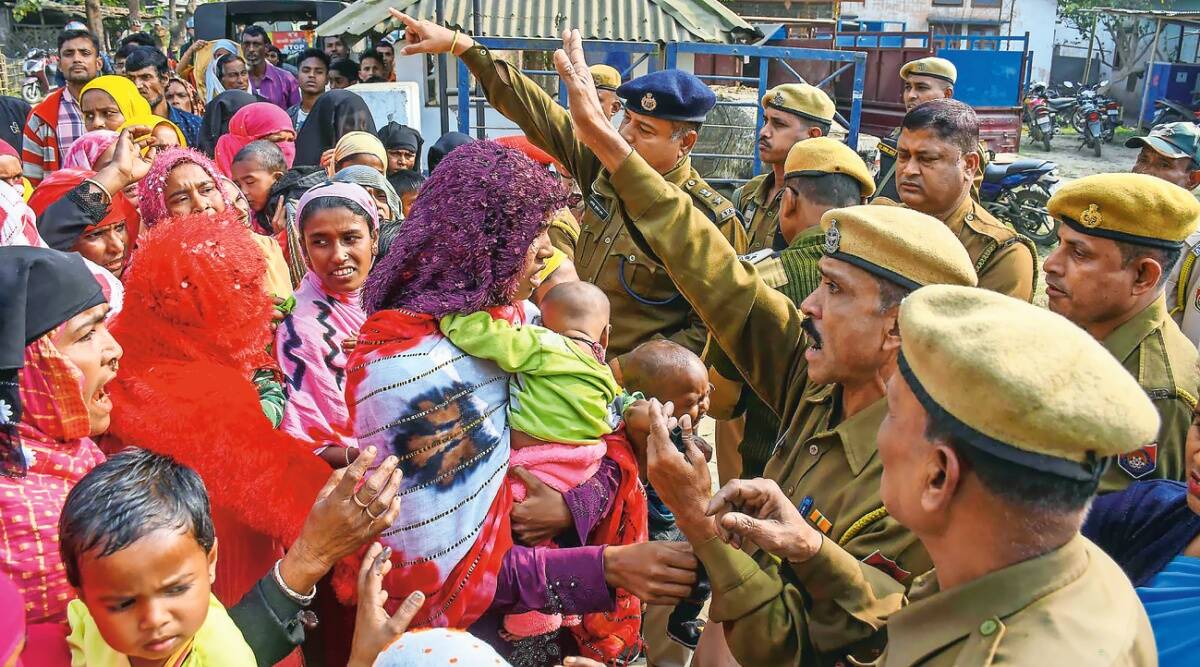A state-wide crackdown on child marriage in Assam has led to the arrest of 3000 men recently. It has sparked protests by their families in different parts of the state, demanding the release of their men as they are the sole breadwinners of the family. The crackdown is being carried on the 2006 legislation that prohibits child marriage. However, this sweeping arrest throughout Assam has raised controversies in several areas. While some child rights activists ponder over the effectiveness of these arrests, some lawyers are contemplating why a law enacted in 2006 is only being enforced to such a massive extent by the administrators now.
In Assam, teenage pregnancy is high at an alarming rate of 16.8 percent which reflects the poor public health and public welfare of the state. These arrests were meant to set an example and prohibit such instances of child marriage. These arrests have been carried out based on 4135 FIRs lodged across Assam. Chief Minister Himanta Sarma has formed a sub-committee to oversee the rehabilitation of girl children ‘rescued’ from child marriages.
On February 6, Assam Chief Minister Himanta Biswas Sarma made a public comment, “We’re resolved to continue this drive until we fulfil our objective. I urge the people to cooperate with us in controlling this harmful trend.”
Also read: Bride And Prejudice: The Fight For Eradicating Child Marriage In Delhi’s Schools
In Assam, teenage pregnancy is high at an alarming rate of 16.8 percent which reflects the poor public health and public welfare of the state. These arrests were meant to set an example and prohibit such instances of child marriage. These arrests have been carried out based on 4135 FIRs lodged across Assam. Chief Minister Himanta Sarma has formed a sub-committee to oversee the rehabilitation of girl children ‘rescued’ from child marriages. A sub-committee has been formed with Ranoj Pegu, Keshab Mahanta, and Ajanta Neog from Sarma’s cabinet installed as the key members of the panel. The state cabinet also formed a sub-committee that will formulate a Rehabilitation Policy within 15 days concerning the ‘rescued victims’ of child marriage.

Even though Indian law prohibits child marriage and considers it a crime punishable by up to years of jail, there are small nuances around this law that need to come to focus while discussing child marriage prosecution. Debasmita Ghosh, a human rights lawyer says that according to the law, child marriage is voidable only if the girl child, who was a minor at the time files a petition before the district court. In case the petitioner still remains a minor, their legal guardian could file the petition on their behalf, says Debasmita in a conversation with FII.
Also read: Pehredaar Piya Ki: Dissecting Pedophilia, Child Marriage And Regressive Gender Roles
In this regard, Debasmita Ghosh has also pointed out that, “In most of the arrests made, the couples may be adults now and if they have not filed petitions for annulling their marriages, the state has no business to interfere in their personal lives.”
As in the case of Assam, this Bill if becomes a law can be easily utilised to prosecute interfaith couples and incarcerate them under legal injunctions. In many cases, if the male partner is slightly over the legal age would be charged with statutory rape while the female partner would be brought back home against her wish and would be subjected to harsh and unsavoury conditions for the rest of her life.
The Prohibition of Child Marriage Act was enacted in 2006 but it took the administration years to enforce it rigorously around the state. This raises the inevitable question of whether this law is being used to target a particular community of people and aims to serve a greater political agenda of the ruling party in hindsight.

In 2022, a revised version of the Prohibition of Child Marriage Bill was proposed to the Parliament. The Bill seeks to increase the marriageable age of women from 18 to 21. While this proposition has been lauded by many on ideological grounds, there have been many who raised issues with it in terms of India’s ground reality. Increasing the age of consent of women for marriage allows them to stay at school and develop enough maturity to make their own choices. It gives them educational agency and choices for their future. In this vein, the main objective of not forcing young girl children into marriage at a premature age is to empower them through choices and protect them from sexual exploitation.
It can be argued that the Prohibition of Child Marriage Bill has been structured to realise such objectives regarding girl children in the country. However, one glaring flaw that this Bill has is its inability to take existing ground reality into account. The law is paternalistic and assumes rather than examines the kind of empowerment girl children of the country need at the moment. It is ironic that adults over the age of 18 are granted the right to vote under Universal Adult Franchise but are considered unable to decide their own life when it comes to choosing a partner.
Also read: A Community-Based Approach To Prevent Child Marriage
In the current political scenario, inter-caste and inter-faith couples are being routinely persecuted under the current regime of the Hindu Political Right. As in the case of Assam, this Bill if becomes a law can be easily utilised to prosecute interfaith couples and incarcerate them under legal injunctions. In many cases, if the male partner is slightly over the legal age would be charged with statutory rape while the female partner would be brought back home against her wish and would be subjected to harsh and unsavoury conditions for the rest of her life. This Bill overrides women’s capacity to give consent and infantilises them to a certain extent.

The Bill is faulty because it lacks insight into the lives of the people it aims to improve. Oftentimes, women coming from financially challenged backgrounds find themselves faced with few educational and employment opportunities. Choices are limited and very few options are available to young women who wish to alleviate themselves from social, and economic poverty. In such cases, choosing their partner is the only area of their lives where they can exercise agency. Such alleviated age of consent disregards women’s right to choose and often constricts them to a situation where a suitor is imposed on them to their parents and community’s approval.
About the author(s)
Debabratee (she/they) is a student of English Literature at Jadavpur University. When they are not found reading or writing, they are found running after their pet dog and cuddling with him. They are avid binge-watcher of all kinds of OTT content and like to dissect and analyse them in their free time.




